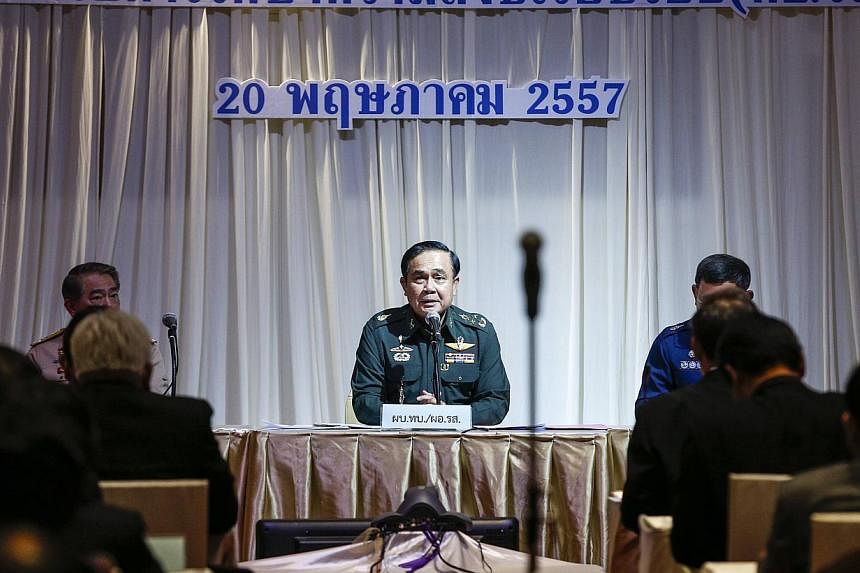The Thai army, after imposing martial law on Tuesday to restore "peace and order" in the conflict-riven country, has ordered stricter censorship of the media.
Thai army chief Prayuth Chan-ocha, who now also heads the newly set up Peace and Order Maintaining Command, on Tuesday evening barred all news and social media outlets from publishing content deemed to "mislead" and "worsen the conflict".
Academics and bureaucrats have also been barred from giving media interviews that are deemed to "cause confusion" and escalate the violence.
The ominous orders came after it stopped the broadcasts of 14 television stations that were affiliated with either side of the political divide. This includes the satellite Bluesky channel, which is aligned with the opposition Democrats as well as anti-government protest movement, as well as the pro-government "red shirt" station Asia Update.
Later in the day, Voice TV, which is operated by Mr Panthongtae Shinawatra, the son of deposed prime minister Thaksin Shinawatra, was taken off the air.
While some quarters had approved of the attempt to reduce the dissemination of hate speech by politically affiliated media outlets, the latest orders raised questions over the extent of censorship to be imposed by the military.
Gen Prayuth says martial law was imposed to create stable conditions to bring conflicting sides to the table.
Over the past six months, anti-government protesters supported by royalist elites and the urban middle class have invaded and blockaded government offices, as well as sabotaged the Feb 2 general election, in a bid to oust the popularly elected Puea Thai party led caretaker government.
The caretaker Cabinet has refused to resign until new elections put a new government in place.
The conflict is part of an almost decade long struggle for power between those supporting and opposing Thaksin - whose political parties have repeatedly been returned to power despite him living self-exile overseas to evade a graft related jail sentence.
The deadlock has brought Asean's second largest economy to the brink of a recession.
Until Tuesday, rival groups of pro- and anti-government supporters massed in separate parts of Bangkok had created the possibility of confrontation, but they have now been ordered by the army to remain in their rally sites.
Still, anti-government PDRC indicated on Tuesday night that it was not about stay put. PDRC leader Suthep Thaugsuban told supporters it was planning a march through central Bangkok on Friday night.
"We can now assemble without fear," he said. "The military… are here to protect us."


